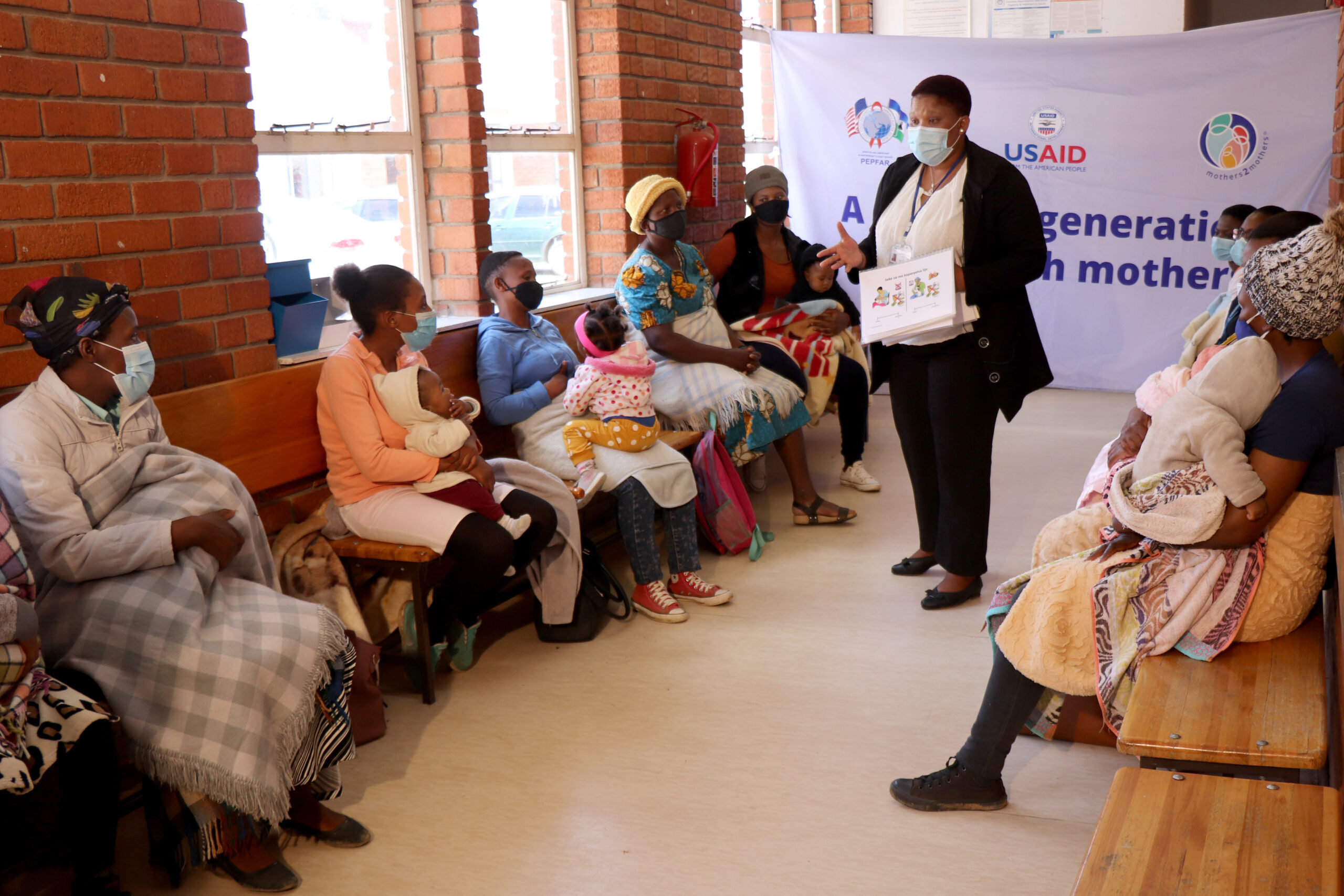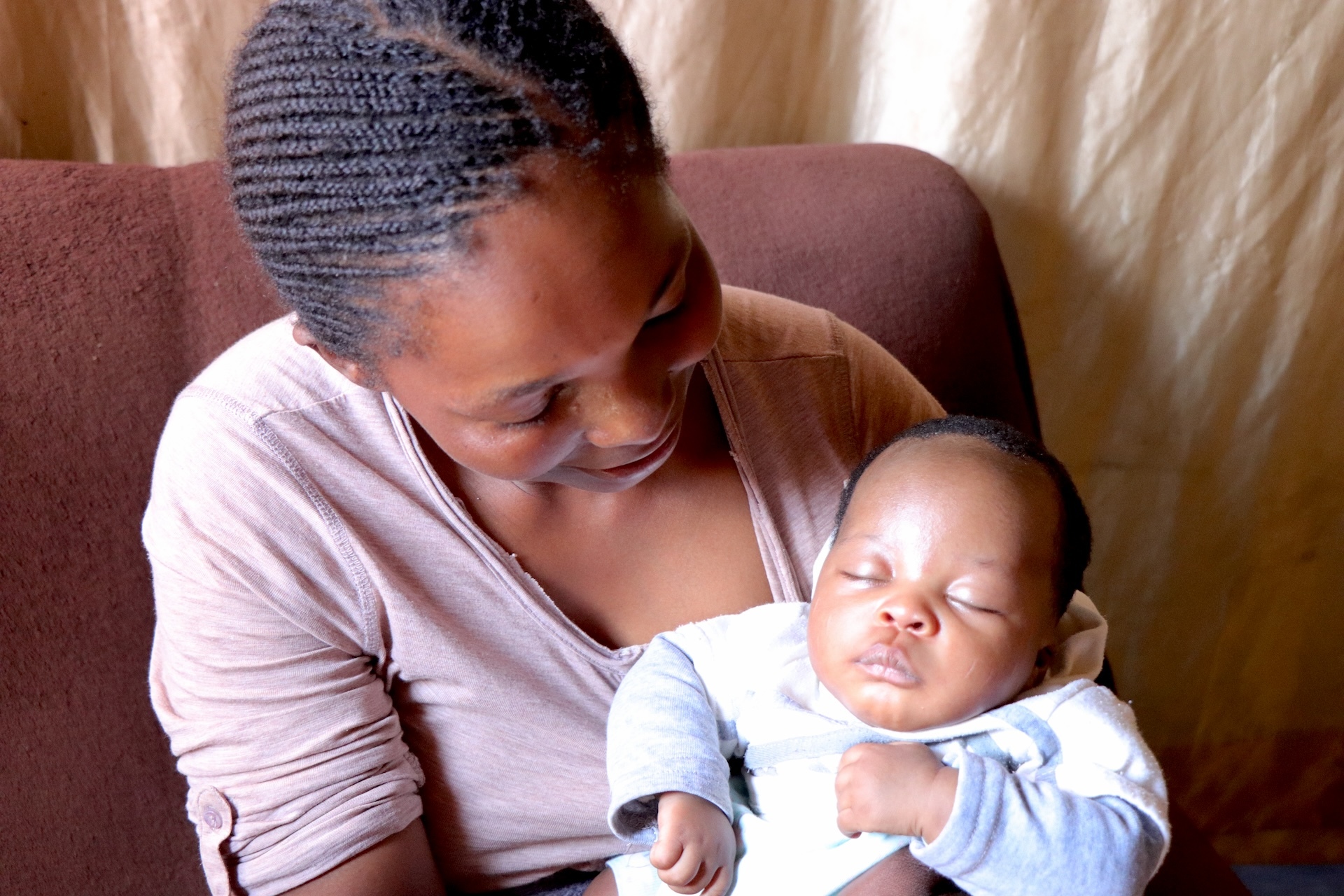Breastfeeding is the best and healthiest feeding option for babies, regardless of the mother’s HIV status. Breast milk contains all the water, food, and nutrients to protect the baby from common infections such as diarrheal infection and it ensures that babies receive vital nutrients that are needed for their growth and development to avoid malnutrition.
World Breastfeeding Week is commemorated annually in the first week of August to raise awareness of the importance of breastfeeding. This year’s theme is Step-up for Breastfeeding: Educate and Support.

In Lesotho, the Ministry of Health Nutritionist ‘Mahlompho Ntai says that this year’s theme focuses on empowering all stakeholders to protect and support breastfeeding mothers wherever they are. For example, supervisors at workplaces, partners and spouses at home, and parents and in-laws in the community should be equipped with information to provide and sustain breastfeeding-friendly environments.
Ntai highlights that among the common challenges of exclusive breastfeeding are low-milk supply from mothers (often due to food insecurity); lack of breastfeeding hours at work; and the situation of young mothers who return to school, leaving their babies with their grannies.
Ntai says that during Breastfeeding Week, the Mafeteng District in southwest Lesotho will embark on nutrition education at workplaces and will conduct focus group discussions in communities where there are breastfeeding support groups—to talk to mothers-in-laws, fathers-in-laws, and mothers of child-bearing age about exclusive breastfeeding and its successes and challenges.
“The community feedback that will be received from these separate groups will be used to improve interventions to ensure the success of exclusive breastfeeding in the district,” she says.
She says that to ensure nutritional education and support at antenatal and postnatal clinics in the facilities, nurses are trained to convey the exclusive breastfeeding education to pregnant and nursing mothers during consultation visits, and can walk clients through potential barriers or concerns.

‘Marethabile Mothibi, senior PMTCT advisor with the Elizabeth Glaser Pediatric AIDS Foundation (EGPAF), says that at health facilities, mothers are always encouraged to exclusively breastfeed their newborn babies for the first six months of life, regardless of their HIV status—which is in line with the national infant and young child feeding guidelines and also embedded in the national guidelines for eliminating mother-to-child HIV transmission. Women with HIV continue to take their treatment and have their viral load monitored at the encounter of their pregnancy and every three months thereafter until they are done breastfeeding to ensure they do not pass the virus to their babies.
“Apart from being a clinician, I am also a mother of two children, whom have been exclusively breastfed for six months. When I talk to mothers, I also share my living testimony that exclusive breastfeeding is achievable with the support of family members or colleagues. I, therefore, strongly encourage breastfeeding regardless of HIV’s status,” Mothibi says.
When I talk to mothers, I also share my living testimony that exclusive breastfeeding is achievable with the support of family members or colleagues.
Mothibi says that along with the health benefits of breastfeeding, it is free and it is always warm and ready for the baby at any time, even at night—no need to wake up and prepare it. Breastmilk does not need refrigeration and is always fresh from the source.
Another important benefit breastfeeding is that it bonds the mother and her baby. Mothibi says that the bonding extends to the father and the whole family.
“At facilities, pregnant and breastfeeding mothers are encouraged to bring along their partners or mothers-in-law so that during health education they can also be empowered with information and skills to support nursing mothers during the exclusive breastfeeding period,” she says. Right now, most mothers are opting for breastfeeding because of education provided during antenatal clinics.”




